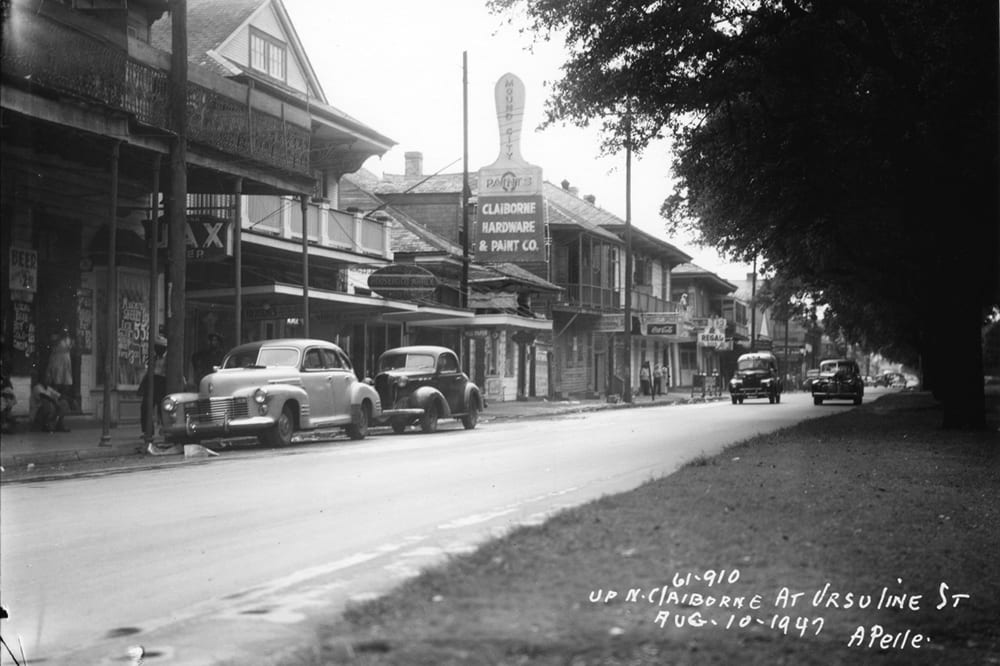
Then: "The Main Street of Black New Orleans", view up North Claiborne at Ursuline Street, New Orleans, Louisiana, 1947, NBC News
Despite being created for the betterment of the nation, highway construction still had negative consequences.

Then: "The Main Street of Black New Orleans", view up North Claiborne at Ursuline Street, New Orleans, Louisiana, 1947, NBC News
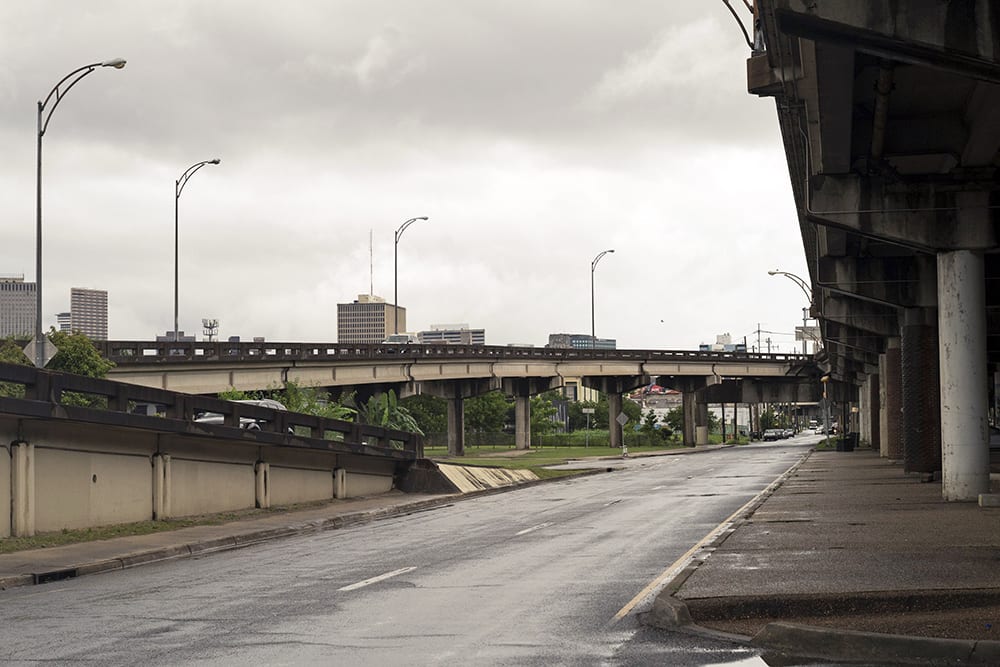
Now: Interstate 10, view up North Claiborne at Ursuline Street, New Orleans, Louisiana, 2020, NBC News
Construction of the Interstate Highways was a devastating turning point across the country for thousands of marginalized communities, primarily poor and of color, whose homes, businesses, and communities were leveled or cut through in the name of progress. For example, the Rondo Neighborhood, a once thriving Black community in Saint Paul, Minnesota, was cut through by I-94, further exacerbating the social and financial hardships of its citizens.
Rondo Oral History Interview with Yusef Mgeni, 2003, Gale Family Library
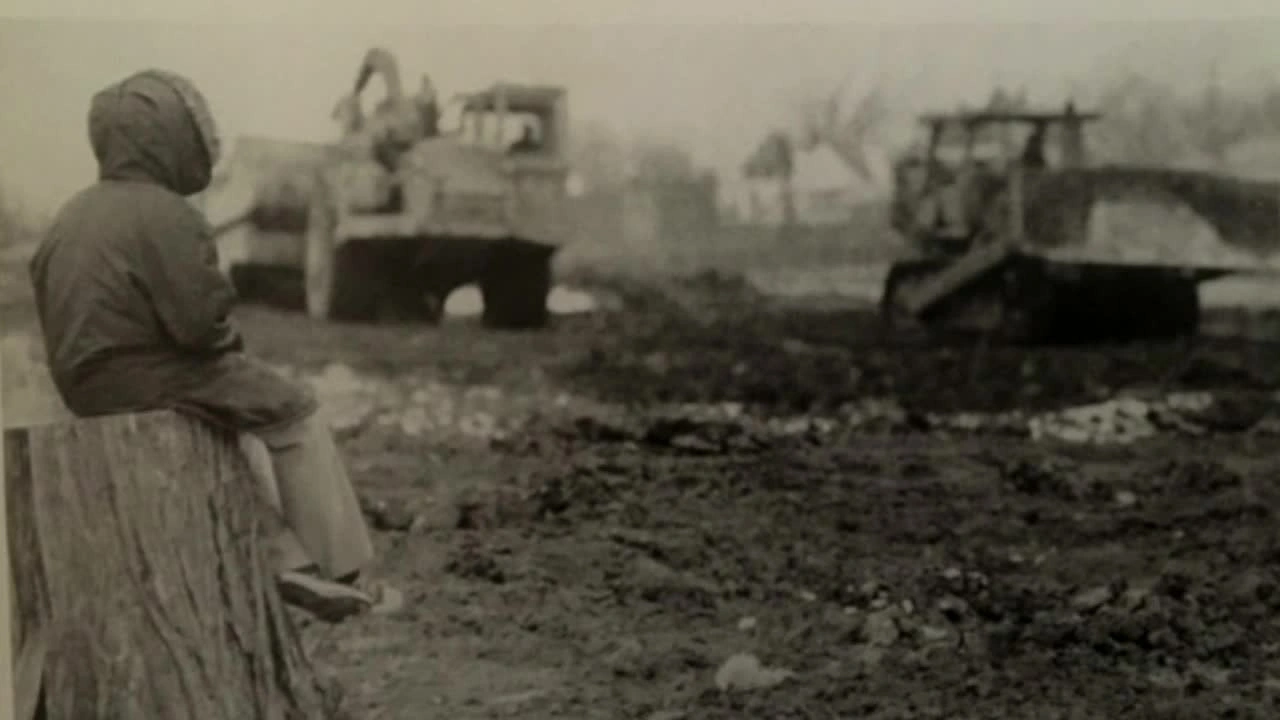
A child watches as bulldozers level what used to be the Rondo Neighborhood, 1965, KSTP
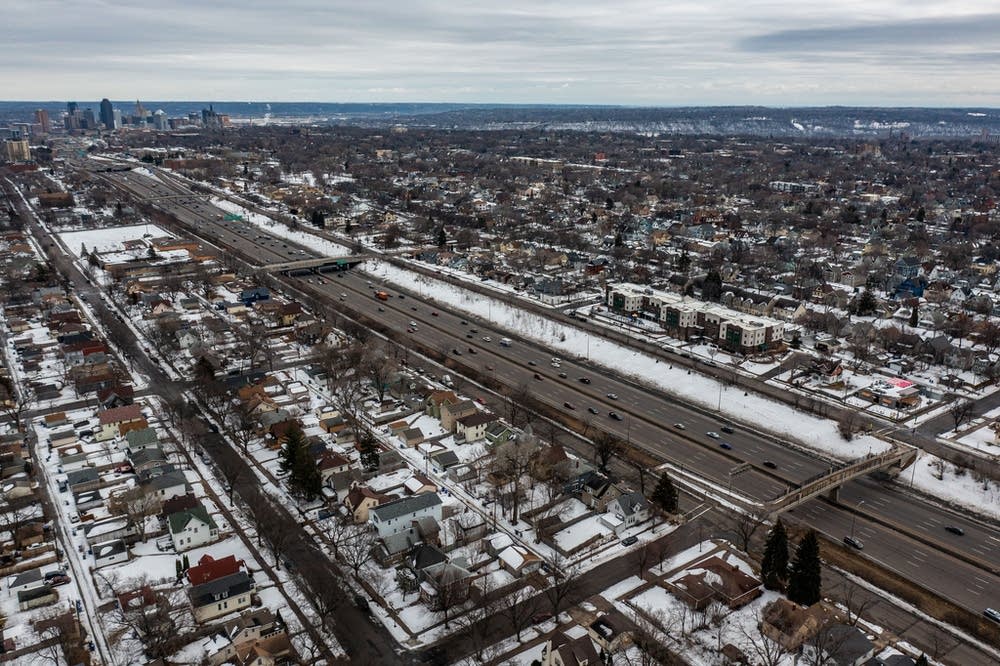
Interstate 94 running through the Rondo Neighborhood, 2022, Reconnect Rondo
Today, communities adjacent to I-94 suffer significantly higher health-related issues due to highway air and noise pollution, decreased property values, and a divided community with limited access across the highway.
Devastated communities like the Rondo Neighborhood sparked fierce public opposition to several future construction projects. "Freeway Revolts" erupted in numerous cities as citizens took action to prevent similar impacts on their communities.
"If these engineers had the faintest insight into the art of city planning, they would know that long-distance highways should never enter a city’s limits."
~ Lewis Mumford, Landscape Architecture, 1957
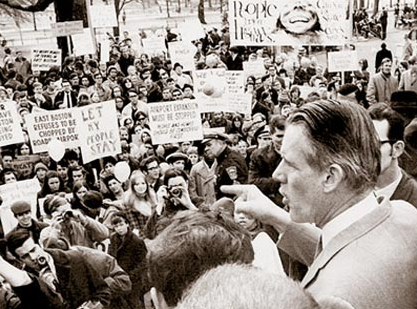
Massachusetts Protesters, 1970, Federal Highway Administration
These revolts started in San Francisco as organized opposition led to the cancellation and deconstruction of numerous highway projects. They then gained momentum in other cities, with many also achieving successful results.
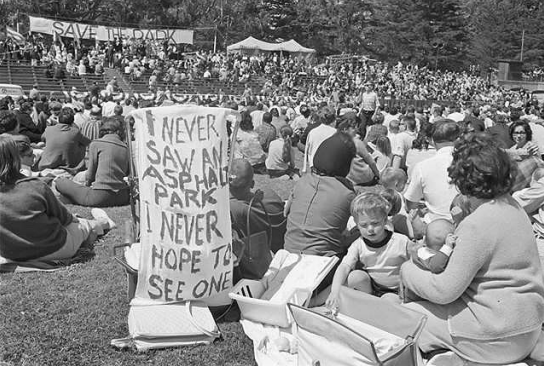
Save the Panhandle Park rally in Golden Gate Park, San Francisco, California, 1961, Metropolitan Transportation Commission
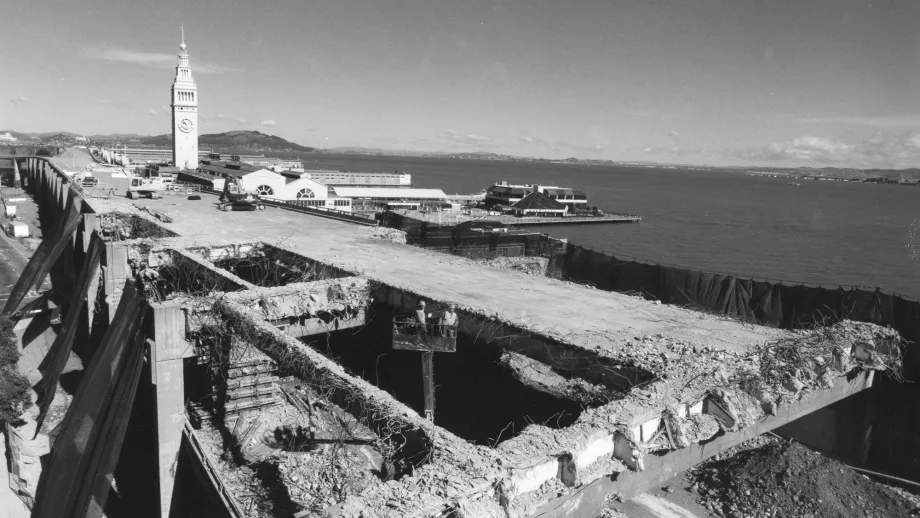
Deconstruction of Embarcadero Freeway, San Francisco, California, 1991, Metropolitan Transportation Commission